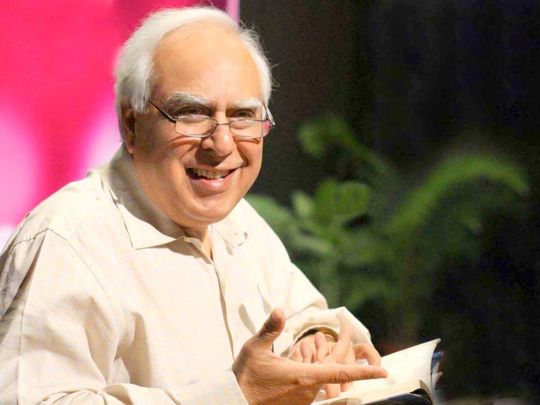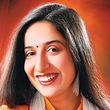
Kapil Sibal, India’s foremost constitutional lawyer, a former Union Minister and one of the original midnight’s children — he was born in a refugee camp post-partition, talks about what the future holds for Indian democracy as India will soon vote, the historic judgement he secured in the opaque electoral bonds case, the way the free press is letting down democracy and how draconian laws passed by his UPA govt are now being used against the authors. Excerpts:
You and Prashant Bhushan, in the best tradition of public interest litigation, recently got the opaque electoral bonds struck down by the Supreme Court. How hard was the fight?
It goes to the credit of Chief Justice of India (CJI) DY Chandrachud that he listed the matter for hearing. The challenge to the Electoral Bond Scheme (EBS) was pending for several years. CJI could well have not heard the matter and postponed it till after elections. The Chief Justice must be given the credit for hearing the matter at least before the elections.
The fight was not easy before a Constitution Bench of 5 Judges. The reality is that while the judgement of the court set-aside the EBS, but political parties are now confronted with a non-level playing field. This is because the Rs6,600 crores that the BJP has benefited from through the EBS is something that is a reality which has created a non-level playing field.
However, the judgement of the Supreme Court is historic. History will recognise that in the annals of the judgements of the Supreme Court, this one will stand out as a milestone.
There are several arguments that appealed to the Constitution Bench. First, that the EBS was non-transparent and therefore, violative of the fundamental right to free speech. The right to information is part of the said fundamental right. The rationale was that funding of elections and the source of funding must be transparent, consistent with the laws hitherto framed.
To the extent, that the name of the donor was not required to be disclosed, the scheme suffered from non-transparency and therefore, was unconstitutional. Secondly, the scheme had nothing to do with elections, but was a mechanism designed to enrich political parties and in this particular case, the BJP, which is why the BJP walked off with a bonanza of more than Rs6,600 crores.
The EBS brought about an amendment to various laws. The Companies Act, 1956 was amended by allowing the corporate sector to make contributions without a ceiling limit. Before the Companies Act, 1956 was amended contributions to political parties was capped at 7.5% of the average net profits of a company in the last 3 years. Now even loss-making companies were entitled to contribute.
Companies with small profits seem to have contributed several times more than their net profits. Even shell companies could contribute. The Income Tax Act, 1961 was amended pursuant to which the sources of contributions to political parties, when they file their returns, were not required to be disclosed. The Representation of the People Act, 1950 was amended by removing the requirement to disclose both the name of the donors and the contributions made.
All these amendments were struck down by the judgement of the Supreme Court as it enabled a regime where the corporate sector perhaps, on the basis of a quid pro quo, would make contributions to political parties in a non-transparent manner.
As it turns out, the facts revealed thus far are telling and suggest, at several levels a quid pro quo in respect of individuals and the corporate sector, in particular, in respect of contributions made to the ruling party. This may well apply to state parties who are also beneficiaries of such contributions.
You just this week told the Supreme Court, “I hope your lordships don’t mind. (When the) history of this Court will be written; this will not be a golden period?” What did you mean by this?
This Court has, over the years and in particular since 2014 and more so since 2019, rendered judgements which have upheld laws and decisions of the government, which in my belief are clearly unconstitutional.
In addition to that, the Supreme Court has not heard matters consistent with the urgency with which they are required to be heard. This applies to the challenge to demonetisation, to Article 370 of the Constitution, to the EBS and many other such challenges which are still pending in the Supreme Court.
I believe that when the history of this Court is written, this era will not be considered as a golden era. In fact, several of the Judges who were party to some of these judgements are now holding constitutional positions, which again is a matter of some concern.
The judgement of the Court in the Prevention of Money Laundering Act, 2002 (PMLA) matter and the hesitation of the Court to review it and to hear existing challenges to the judgement are unfortunate. The decisions of the Court during the course of the pandemic, choosing not to go into the manner in which the pandemic was handled; the judgement of the court on the demonetisation issue and several other judgements will be the subject matter of future debates by academics.
Arvind Kejriwal Delhi’s Chief Minister is in jail under the provisions of the draconian PMLA and is unlikely to get bail. As one of India’s foremost Constitutional jurists, what do you make of this situation? Should Kejriwal not be eligible for bail?
The arrest of Arvind Kejriwal is wrong on several counts. First, the timing. The last statement recorded by the Enforcement Directorate (ED) was in August 2023. Thereafter, there has been no investigation. Kejriwal could well have been arrested immediately after that, but the ED chose not to do so for obvious reasons.
Therefore, Kejriwal was arrested in March 2024 knowing full well that this will disable him from participating in the electoral process though he is the Chief Minister of Delhi and the head of a political party, which has stakes not just in two states but seeks to have its footprints felt beyond Delhi and Punjab.
Secondly, there is no evidence against Kejriwal either in terms of a money trail or any evidence which substantiates the allegations made. The third, is the so-called evidence, that of accused themselves, each turned approver, obviously in their self-interest and that also while denying their involvement in the first instance.
In the process, approvers will not be prosecuted and those named by them will be prosecuted, which includes Kejriwal. The law on the subject is that an approver’s statement is the flimsiest of evidence and cannot be relied upon unless corroborated by substantive evidence, which in this case is missing. There are judgements of the Supreme Court that hold that the uncorroborated testimony of an approver cannot be the basis of a conviction.
While you were a Cabinet minister in the UPA government, some of the most draconian provisions of the PMLA were drafted by your colleague P Chidambaram. Now it is being used against the opposition. Did you oppose it then? Do such laws have a place in democracy?
Laws can be used and misused. That is true of any law, including the PMLA. Even a law like the Code of Criminal Procedure, 1973 (CrPC) can and is misused depending on who is being investigated.
In fact, PMLA was enacted by the BJP government under the leadership of Vajpayee Ji. It was brought into force since it had received the assent of the President before 2004 and therefore, consistent with our international obligations, it had to be notified.
Amendments were made by P. Chidambaram thereafter, but they were never misused when the UPA was in power. The rampant misuse of these powers shows that the agencies who implement the law can either, consistent with its intent, use it for punishing the guilty or saving the guilty and punishing the innocent.
That is what the present regime has done. According to me, this law had to be passed because of our international obligations, but the law needs to be interpreted consistent with its intent and those misusing it should be prosecuted.
The Congress party recently had its accounts frozen while we are weeks away from the general elections. What do you think of this?
The freezing of the account of the Congress party is yet another instance of misuse of existing laws.
The UPA was attacked by India Against Corruption led by Kejriwal with Anna Hazare as the mask of the agitation. Was this all a huge plot against the UPA government?
That it was a plot is self-evident. The exploitation of Anna Hazare; Kejriwal riding on the shoulders of Anna Hazare, the non-existent 2G scam, the allegations of imaginary scams, the collaboration of Anna Hazare, Ramdev, etc forming an alliance in support of the BJP, Vinod Rai’s preposterous presumptive loss in the 2G scam, and the allocations of coal blocks are all circumstances that point to a meeting of minds to destabilise the then UPA government.
You literally are one of midnight’s children who came into being with India. Are you pessimistic about Indian democracy having very thin roots?
Indian democracy will thrive because of its diversity. Culturally, we are a paternalistic society, which in Hindi we call a ‘mai baap’ culture. But 1.4 billion people cannot be controlled and their aspirations buried by autocratic forces. Our democracy’s roots may be thin, but democracy has taken root in my country.
Finally, a free press is non-negotiable in a democracy. How would you rate India’s press in the past ten years? Do you think two billionaires should control all of the mainstream media?
India’s press has been a let-down, to say the least. Mainstream media are perceived as collaborators in the conspiracy to diminish institutions which are the pillars of democracy. Some of them in the mainstream media are contributors to the EBS and even otherwise have to seek favours from the government and therefore, are not willing to jeopardise their economic interests. Obviously, they need to follow the Pied Piper, but the tune in the end will not mesmerise 1.4 billion people.











